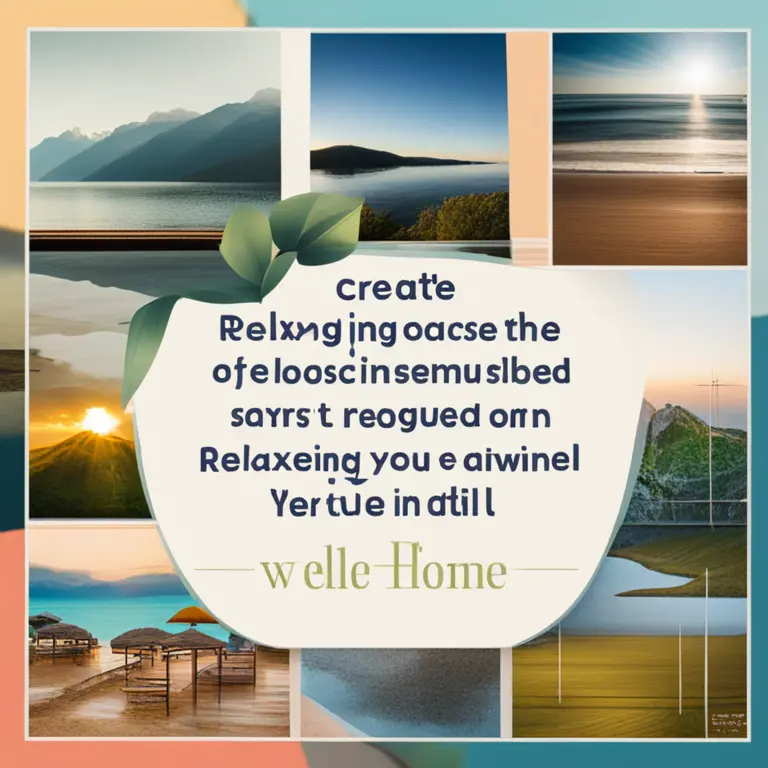
Unlocking Meditation: A Step-by-Step Guide
Discover the practice of meditation with our straightforward guide, designed to help you achieve mindfulness and inner peace.
article by Hina Kurosawa
Introduction to Meditation
As we search for tranquility in our busy lives, meditation offers a way to achieve a state of calm and balance. With roots stretching back thousands of years, this practice has adapted to the modern world, becoming a staple for those seeking mindfulness in 2024 and beyond. Embracing meditation requires no special equipment—just a quiet space, a few moments of your day, and an open mind. Whether you're a beginner or rekindling your practice, our guide is here to help you navigate your meditative journey.

Setting the Scene for Serenity
Find a place that is calm and free from distractions. This could be a dedicated room, a quiet corner, or a serene outdoor setting. The goal is to create an environment conducive to relaxation. Consider dimming the lights, playing soft ambient music, or using aromatic scents to enhance your experience. Sit comfortably, either cross-legged on the floor or in a chair with your feet flat, and your hands resting on your knees or in your lap.

Initiating Your Practice
Start by setting a timer for your desired session length to maintain focus without clock-watching. The "golden duration" for beginners is typically 5-10 minutes, which you can gradually extend as your practice evolves. Close your eyes gently, and begin to breathe naturally. Pay attention to how your breath moves in and out of your body without trying to control it. This simple observation anchors your consciousness in the present moment.

Finding Focus Amidst Thoughts
It's natural for your mind to wander as you meditate. Recognize these intrusions without judgment, and gently usher your focus back to your breathing. Some practitioners use a mantra—a word or phrase repeated silently—as a focal point. Guidance through modern meditation apps or live-streamed classes can also aid in keeping you centered and engaged. Remember, the aim is not to empty the mind but to become aware of your thoughts and feelings without attachment.

Embracing the Meditation Techniques
Various meditation styles exist to suit individual preferences. Mindfulness meditation encourages acute awareness of the present, while focused meditation involves concentration on a single point, sound, or idea. Movement meditations, such as tai chi or yoga, integrate physical posture and breath. Experiment with different methods to find what resonates with you. Consistent practice is paramount, as it cultivates a deeper sense of focus and mindfulness.
Regular Practice and Reflection
Aligning meditation with your daily routine ensures it becomes a habit. Reflect on your practice regularly, acknowledging the progress you’ve made. It's beneficial to use a journal to track insights and emotions that arise. As we advance in the modern age, the integration of wearable technology can also aid meditation, with devices now able to track your heart rate and provide feedback on your progress.
Overcoming Common Obstacles
One may encounter hurdles like restlessness, time constraints, or self-doubt. It's essential to approach these obstacles with patience and adapt your practice as needed. Shorter sessions, guided meditations, or even joining a meditation group can offer support. Whatever challenges arise, the commitment to your meditative practice is a testament to your inner strength and dedication to personal growth.
Published: 1/18/2024
Modified: 1/18/2024
More predictions
Come back here soon to learn more about yourself and your future


Unlock Beginner's Guide to Mindful Meditation
Embark on the journey of mindfulness through meditation with this beginner-friendly guide to creating a peaceful and aware mindset.


Unravelling Your Mindfulness Meditation Journey
Discover the steps to leading a successful mindfulness meditation session, enhancing emotional balance and tranquility.


Your Mindfulness Meditation Journey Unlocked
Discover a serene path to mental clarity and peace through this step-by-step guide to mindfulness meditation.